Stomach Cancer
How to submit an article:
- Registered users can submit any published journal article that has a unique DOI (Digital Object Identifier) name or link to Research Hub.
- For example, you can paste the full DOI link:
https://doi.org/10.1109/5.771073or just the DOI name:10.1109/5.771073into the field above and click submit. - The person who is first to submit a valid article to Research Hub will forever be credited for it, and every article submission earns you +6 Research Points.
Also known as: Gastric Cancer, Gastric Carcinoma
Related Topics
Published research studies are articles that present the findings of original research that has undergone a peer-review process and has been made publicly available in scholarly journals, books or other media.
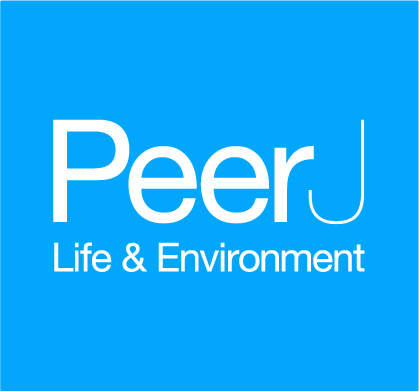
Advances on the anti-tumor mechanisms of the carotenoid Crocin
2023 Jun 29 PeerJ Bao X, Hu J, Zhao Y, Jia R, Zhang H, Xia L
Review Article Crocin Liver Cancer Saffron Breast Cancer Stomach Cancer Colorectal Cancer Cervical Cancer Anti-TumourCrocin, a compound derived from saffron, has shown considerable potential in hindering tumor growth and improving immune status, across various malignant tumors.
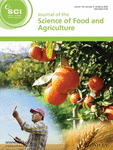
Carrot and carotene and multiple health outcomes: an umbrella review of the evidence
2023 Jan 17 Journal of the Science of Food and Agriculture Yi X, Li J, Liao D, Peng G, Zheng X, Xu H, et al.
Review Article Cataracts Carotene Lung Cancer Carrot Anticancer Stomach Cancer Breast Cancer Alzheimer's Disease Urothelial Cancer SunburnCarrot and carotene consumption could diminish the risk of a wide range of negative health consequences, including multiple types of cancer.
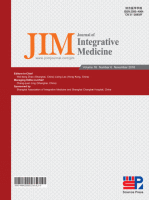
Ziyin Huatan Recipe, a Chinese herbal compound, inhibits migration and invasion of gastric cancer by upregulating RUNX3 expression
2022 Jul Journal of Integrative Medicine Song S, Liu X, Ji Q, Sun D, Xiu L, Xu J, et al.
ZYHT can effectively inhibit the invasion and migration of GC in vitro and in vivo, and its molecular mechanism may relate to the upregulation of RUNX3 expression.
Network Pharmacology Zi Yin Hua Tan Stomach Cancer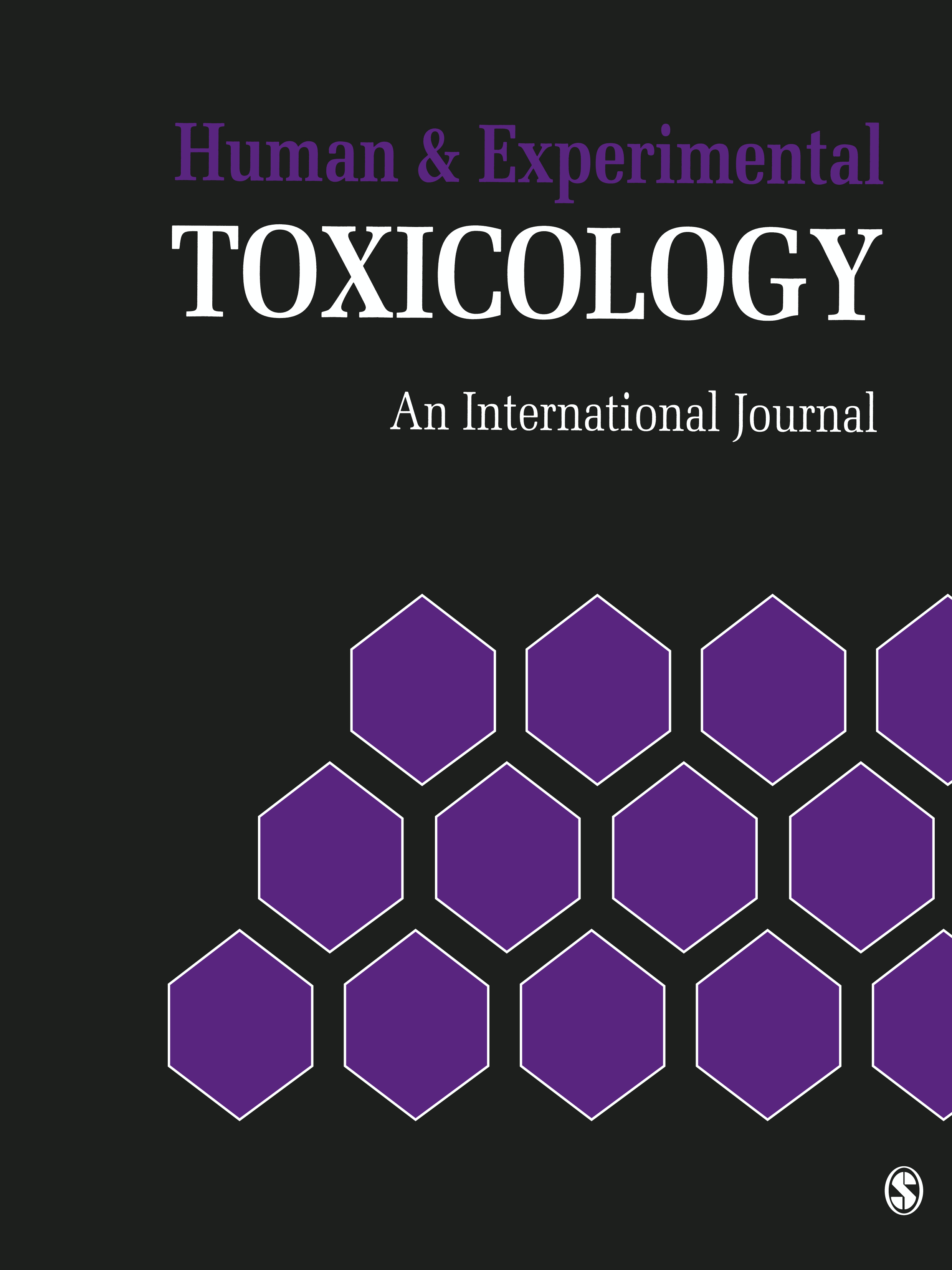
The effects of ellagic acid and other pomegranate (Punica granatum L.) derivatives on human gastric cancer AGS cells
2022 Jan Human & Experimental Toxicology Cheshomi H, Bahrami AR, Rafatpanah H, Matin MM
Experimental Study Animal Study Ellagic Acid Stomach Cancer PomegranateEllagic acid, found naturally in pomegranates, significantly inhibits growth and migration of gastric cancer cells without causing notable side effects.

Potentially Bioaccessible Phenolics from Mung Bean and Adzuki Bean Sprouts Enriched with Probiotic—Antioxidant Properties and Effect on the Motility and Survival of AGS Human Gastric Carcinoma Cells
2020 Jun 28 Molecules Świeca M, Herok A, Piwowarczyk K, Sikora M, Ostanek P, Gawlik-Dziki U, et al.
Experimental Study Adzuki Bean Mung Bean Stomach CancerProbiotic-enriched mung and adzuki bean sprouts demonstrate increased antioxidant potential and exhibit cytostatic and cytotoxic effects on human stomach cancer cells.
Research insights are moderated by the Research Hub team and offer an at-a-glance overview of interesting research findings.

2023 PeerJ
Crocin, a compound derived from saffron, has shown considerable potential in hindering tumor growth and improving immune status, across various malignant tumors.
Review Article Anti-Tumour Breast Cancer Cervical Cancer Colorectal Cancer Crocin
Advances on the anti-tumor mechanisms of the carotenoid Crocin
Bao X, Hu J, Zhao Y, Jia R, Zhang H, Xia L

2023 Journal of the Science of Food and Agriculture
Carrot and carotene consumption could diminish the risk of a wide range of negative health consequences, including multiple types of cancer.
Review Article Alzheimer's Disease Anticancer Breast Cancer Carotene Carrot
Carrot and carotene and multiple health outcomes: an umbrella review of the evidence
Yi X, Li J, Liao D, Peng G, Zheng X, Xu H, et al.

2022 Human & Experimental Toxicology
Ellagic acid, found naturally in pomegranates, significantly inhibits growth and migration of gastric cancer cells without causing notable side effects.
Experimental Study Ellagic Acid Pomegranate
The effects of ellagic acid and other pomegranate (Punica granatum L.) derivatives on human gastric cancer AGS cells
Cheshomi H, Bahrami AR, Rafatpanah H, Matin MM

2020 Molecules
Probiotic-enriched mung and adzuki bean sprouts demonstrate increased antioxidant potential and exhibit cytostatic and cytotoxic effects on human stomach cancer cells.
Experimental Study Adzuki Bean Mung Bean
Potentially Bioaccessible Phenolics from Mung Bean and Adzuki Bean Sprouts Enriched with Probiotic—Antioxidant Properties and Effect on the Motility and Survival of AGS Human Gastric Carcinoma Cells
Świeca M, Herok A, Piwowarczyk K, Sikora M, Ostanek P, Gawlik-Dziki U, et al.
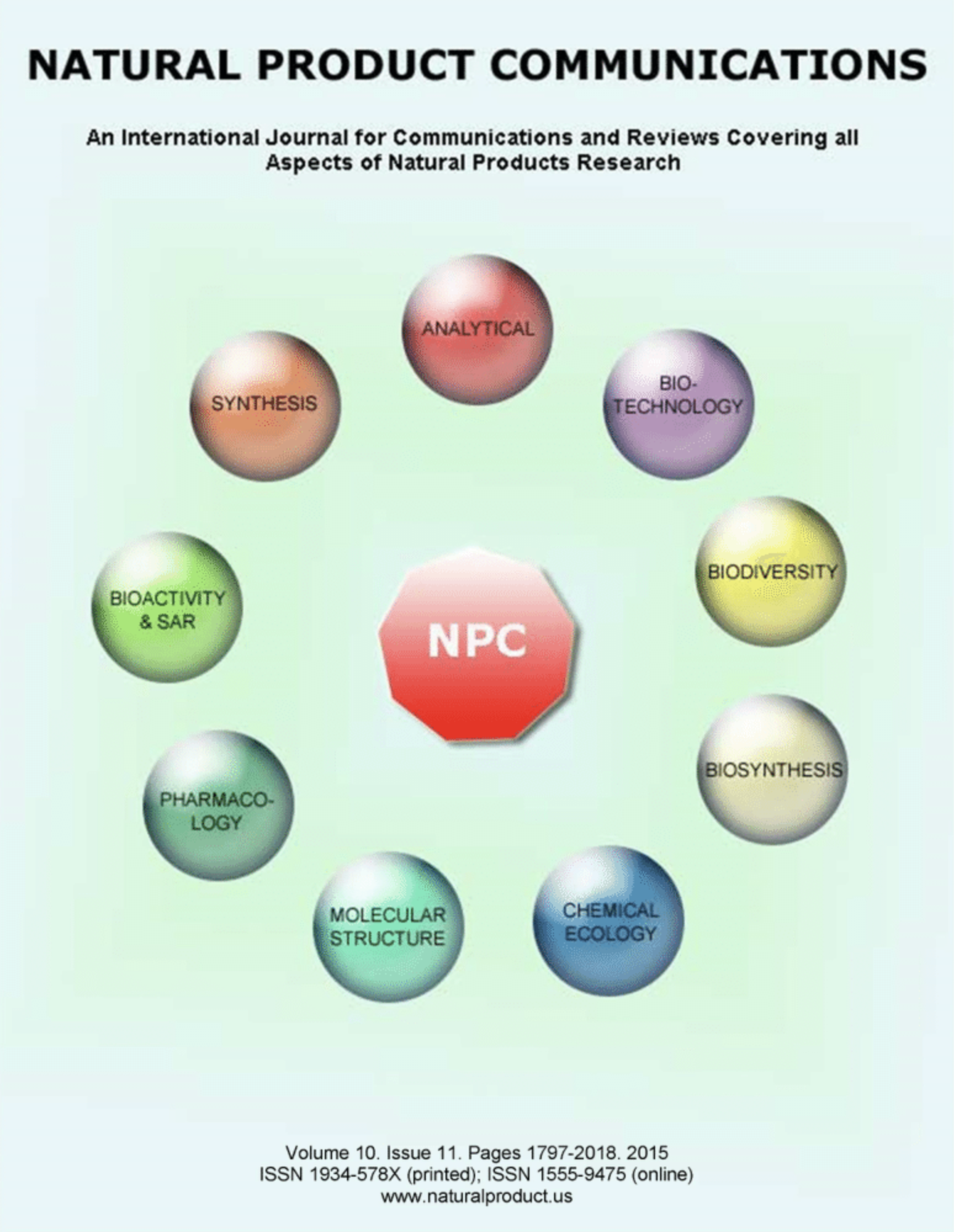
2020 Natural Product Communications
The pharmacological actions of Coix seed in gastric cancer treatment may involve pathways in cancer, the DNA damage response, transcription factor binding, the apoptotic process, and the cell–cell junction.
Mechanism Analysis of Coix Seed in Gastric Cancer Treatment Based on Biological Network Modules
Zhang, F., Liu, X., Huo, B., et al.
Review Articles
Review articles summarise and critically evaluate the current state of research on a specific topic or field by synthesising multiple primary research studies.

Advances on the anti-tumor mechanisms of the carotenoid Crocin
2023 Jun 29 PeerJ Bao X, Hu J, Zhao Y, Jia R, Zhang H, Xia L
Review Article Crocin Liver Cancer Saffron Breast Cancer Stomach Cancer Colorectal Cancer Cervical Cancer Anti-TumourCrocin, a compound derived from saffron, has shown considerable potential in hindering tumor growth and improving immune status, across various malignant tumors.

Carrot and carotene and multiple health outcomes: an umbrella review of the evidence
2023 Jan 17 Journal of the Science of Food and Agriculture Yi X, Li J, Liao D, Peng G, Zheng X, Xu H, et al.
Review Article Cataracts Carotene Lung Cancer Carrot Anticancer Stomach Cancer Breast Cancer Alzheimer's Disease Urothelial Cancer SunburnCarrot and carotene consumption could diminish the risk of a wide range of negative health consequences, including multiple types of cancer.
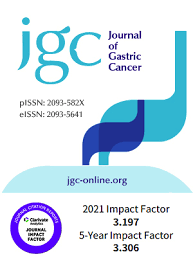
Effect of Carrot Intake in the Prevention of Gastric Cancer: A Meta-Analysis
2015 Jan Journal of Gastric Cancer Fallahzadeh H, Jalali A, Momayyezi M, Bazm S
Systematic Review Meta-Analysis Stomach Cancer CarrotConsuming carrots reduces the risk of gastric cancer by an indicated 26%.
Clinical Trials
Clinical trials are research studies that involve people and are conducted to evaluate the safety and efficacy of new treatments or interventions, such as drugs, medical devices, or behavioural therapies.
Study Protocols
Published study protocols are detailed plans that outline the objectives, methodology, statistical analyses, and organisation of a research study that have been made publicly available for others to review and use as a reference.
Presentation Slides

Review Article
Crocin, a compound derived from saffron, has shown considerable potential in hindering tumor growth and improving immune status, across various malignant tumors.
Bao X, Hu J, Zhao Y, Jia R, Zhang H, Xia L

Review Article
Carrot and carotene consumption could diminish the risk of a wide range of negative health consequences, including multiple types of cancer.
Yi X, Li J, Liao D, Peng G, Zheng X, Xu H, Zhang T, Ai J

Experimental Study
Ellagic acid, found naturally in pomegranates, significantly inhibits growth and migration of gastric cancer cells without causing notable side effects.
Cheshomi H, Bahrami AR, Rafatpanah H, Matin MM

Experimental Study
Probiotic-enriched mung and adzuki bean sprouts demonstrate increased antioxidant potential and exhibit cytostatic and cytotoxic effects on human stomach cancer cells.
Świeca M, Herok A, Piwowarczyk K, Sikora M, Ostanek P, Gawlik-Dziki U, Kapusta I, Czyż J

The pharmacological actions of Coix seed in gastric cancer treatment may involve pathways in cancer, the DNA damage response, transcription factor binding, the apoptotic process, and the cell–cell junction.
Zhang, F., Liu, X., Huo, B., Li, B., & Zhang, R. (

Systematic Review
Consuming carrots reduces the risk of gastric cancer by an indicated 26%.
Fallahzadeh H, Jalali A, Momayyezi M, Bazm S
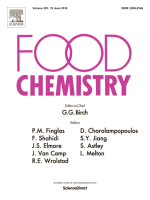
Experimental Study
Adzuki bean exhibited the strongest antiproliferative properties in a dose-dependent manner against all digestive system cancer cell lines, ovary cancer cell SK-OV-3 and breast cancer cell MCF-7 among all legumes tested.
Xu B, Chang SKC
Executive Summary
Write an executive summary in the form of a blog article on the topic of "Research into Chinese medicine treatment for Stomach Cancer" summarising the research below and using language that can be easily understood by patients and avoiding medical jargon using a professional and caring tone of voice.
Write an executive summary in the form of a blog article on the topic of "Researched Chinese medicine treatments for Stomach Cancer" summarising the research below in an objective and easy to understand way, and using language that can be easily understood by patients. Group the article into Chinese medicine treatments first, followed by nutrition and other treatments. Avoid using medical jargon and use a professional and caring tone of voice.
Write me a concise but easy to understand executive summary on the topic of "Chinese medicine treatments for Stomach Cancer" based on the following research that I will give you. Your summary should be 2 paragraphs long in Australian English spelling and include references to the studies.
A Review Article published in 2023 in the journal PeerJ found that Crocin, a compound derived from saffron, has shown considerable potential in hindering tumor growth and improving immune status, across various malignant tumors. The methodology for the study involved an in-depth review of modern pharmacological studies that have analyzed the therapeutic effects of crocin, a natural compound that can be extracted from saffron. Various anti-tumor effects were assessed including the induction of tumor cell death (apoptosis), restrictions on tumor cell proliferation, and potential barriers to invasion and metastasis of these cells. The potential for enhancement of sensitivity to chemotherapy and improvement of immune status were also examined. Following the review, the study revealed that crocin has significant anti-tumor properties. It showed that this natural compound can induce apoptosis in tumor cells, inhibit their expansion and progression, and even prevent their invasiveness and metastasis. Furthermore, crocin demonstrated the potential to enhance the body’s responsiveness to chemotherapy and help boost the immune system. These effects were observed across a range of different malignant tumors, including stomach, liver, cervical, breast, and colorectal cancers.
A Review Article published in 2023 in the journal Journal of the Science of Food and Agriculture found that Carrot and carotene consumption could diminish the risk of a wide range of negative health consequences, including multiple types of cancer. An umbrella review methodology was adopted to identify connections between carrot and carotene intake and various health outcomes. We turned to databases such as Web of Science, PubMed, and Embase to find the needed data. The analysis included the collected evidence from both interventional and observational studies that focused on carrots, carotene, and any related health impact. To estimate the summary effect size for each correlation, both random and fixed effects models were employed. The study reviewed a total of 1329 studies and utilized the data from 30 meta-analyses with 26 health outcomes that fit the eligibility requirements. These featured outcomes related to various types of cancer, fractures, age-related cataract, sunburn, and Alzheimer's disease. The associations were analyzed between the health outcomes and the intake of carrots, intake of carotene, and serum carotene levels.
A Experimental Study published in 2022 in the journal Human & Experimental Toxicology found that Ellagic acid, found naturally in pomegranates, significantly inhibits growth and migration of gastric cancer cells without causing notable side effects. In the methodology of this study, High Performance Liquid Chromatography (HPLC) was employed to detect the presence of Ellagic Acid (EA) in samples. Various methods were then used to determine the various anti-cancer properties of different concentrations of pomegranate fruit juice, pomegranate peel extract, and pure EA. This included an MTT assay, apoptosis and scratch assay, gelatin zymography and quantitative RT-PCR. Additionally, the study examined the impact of these compounds on immunocompromised C57BL/6 mice carrying human gastric cancer tumors. Extending to discussing the results, it was found that EA inhibited both the proliferation and migration of gastric cancer cells in mice and altered gene expressions related to apoptosis and inflammation. The treatments with EA or pomegranate extract resulted in a noticeable decrease in tumor size in the lab mice. No significant side effects were reported from EA use. In sum, the results showed EA's potential as a safe and effective anti-cancer agent specific to gastric adenocarcinoma.
A Experimental Study published in 2020 in the journal Molecules found that Probiotic-enriched mung and adzuki bean sprouts demonstrate increased antioxidant potential and exhibit cytostatic and cytotoxic effects on human stomach cancer cells. The study utilized mung bean sprouts (MBS) and adzuki bean sprouts (ABS), enriched with probiotic strain 299v, and their gastric digests were tested on human stomach cancer cells, AGS. Differentiation was shown through ABS containing quercetin and kaempferol derivatives while MBS featured kaempferol and apigenin derivatives, each displaying a higher antioxidant potential compared to controls. The viability of AGS reduced notably with low concentrations of ABS extracts, displaying inhibitive action which pointed to their cytostatic effects. In discussing the results, it is noticed that the sprouts showcased dose-independent cytostatic effects. However, ABS extracts were found to be more effective in reducing the proliferation of AGS, compared to MBS. Notably, the ABS extracts exerted about 70% inhibitions, elucidating their strong inhibitive power. Concurrently, the phytochemicals from these probiotic-enriched sprouts were observed to reduce the associated activity significantly. Observations of increased vinculin level, apoptotic shape of cell nuclei, alongside decreased cell motility and proliferation provide evidence that these extracts exhibited not only cytostatic but also cytotoxic activity.
A published in 2020 in the journal Natural Product Communications found that The pharmacological actions of Coix seed in gastric cancer treatment may involve pathways in cancer, the DNA damage response, transcription factor binding, the apoptotic process, and the cell–cell junction. Coix seed, the mature seed of Coix lacryma-jobi L., is a traditional herb widely used in various cancer adjuvant treatments; however, its mechanism is unknown. The aim of this study was to reveal the multitarget mechanisms of Coix seed in the treatment of gastric cancer (GC) by biological network and modular analysis methods. Forty-one ingredients and 482 targets of Coix seed and 165 GC-related genes were obtained from databases. Twelve on-target genes (AICDA, CASP3, EP300, ERBB2, FGFR2, IL12A, IL12B, IL1B, LOX, TJP1, TP53, and TRIB3) of Coix seed overlapped with GC-related genes. Using compound-target and protein–protein interaction network analyses, we discovered the core targets of Coix seed. Markov cluster algorithm-based modular analysis identified 5 potential module targets of Coix seed for GC. Gene Ontology and Kyoto Encyclopedia of Genes and Genomes pathway analysis demonstrated the vast actions of Coix seed, which involve pathways in cancer, the cell cycle, receptor signal transduction, deoxyribonucleic acid damage response, transcriptional regulation, apoptosis, and cell connections. This study elucidated the potential mechanisms of Coix seed on GC, which may lead to the development of an effective drug. Additionally, this study showed the feasibility of network and modular analysis methods to investigate traditional Chinese medicinal herbal mechanisms and may provide a new angle for further research in the field of anticancer mechanisms and multitarget drugs.
A Systematic Review published in 2015 in the journal Journal of Gastric Cancer found that Consuming carrots reduces the risk of gastric cancer by an indicated 26%. Using specific search terms related to gastric cancer and carrot consumption, a comprehensive search through databases such as PubMed, Cochrane Library, Scopus, ScienceDirect, and some Persian databases was conducted. Comprehensive Meta Analysis/2.0 software was utilized for statistical analysis. The initial search yielded 81 articles, but only 5 met the inclusion and exclusion criteria and were included in the study. Without mentioning specifics, a fixed effects model determined a significant reduction in the risk of gastric cancer associated with carrot consumption. The results showed no indication of publication bias through a funnel graph depiction. The results demonstrate an inverse relationship between carrot consumption and the risk of gastric cancer.
A Experimental Study published in 2012 in the journal Food Chemistry found that Adzuki bean exhibited the strongest antiproliferative properties in a dose-dependent manner against all digestive system cancer cell lines, ovary cancer cell SK-OV-3 and breast cancer cell MCF-7 among all legumes tested. This research involved comparing the health-promoting effects of various food legumes. The Cellular Antioxidant Activity (CAA) was assessed using a fluorescence microplate reader and in vitro animal cell cultivation. The antiproliferative properties against cancer cells were evaluated through the MTT method in an in vitro cell culture system. Additionally, the study quantified phytochemicals (total phenolic, procyanidin, saponin, and phytic acid) and chemical antioxidant activities (DPPH free radical scavenging activity, oxygen radical absorbing capacity, peroxyl radical scavenging capacity). The results indicated significant variations in phytochemical and antioxidant activities among different legumes. Notably, adzuki bean demonstrated the strongest dose-dependent antiproliferative effects against various cancer cell lines, including those from the digestive system, ovary, and breast. Meanwhile, black soybean showed the highest levels of saponin, phytic acid, and the strongest cellular antioxidant activities. These findings suggest that food legumes, particularly adzuki beans and black soybeans, are promising as natural antioxidants for health promotion and cancer prevention.
Moderation Tools
Topic
Sign In
Users not signed in are limited to viewing the 5 most recent items of content.